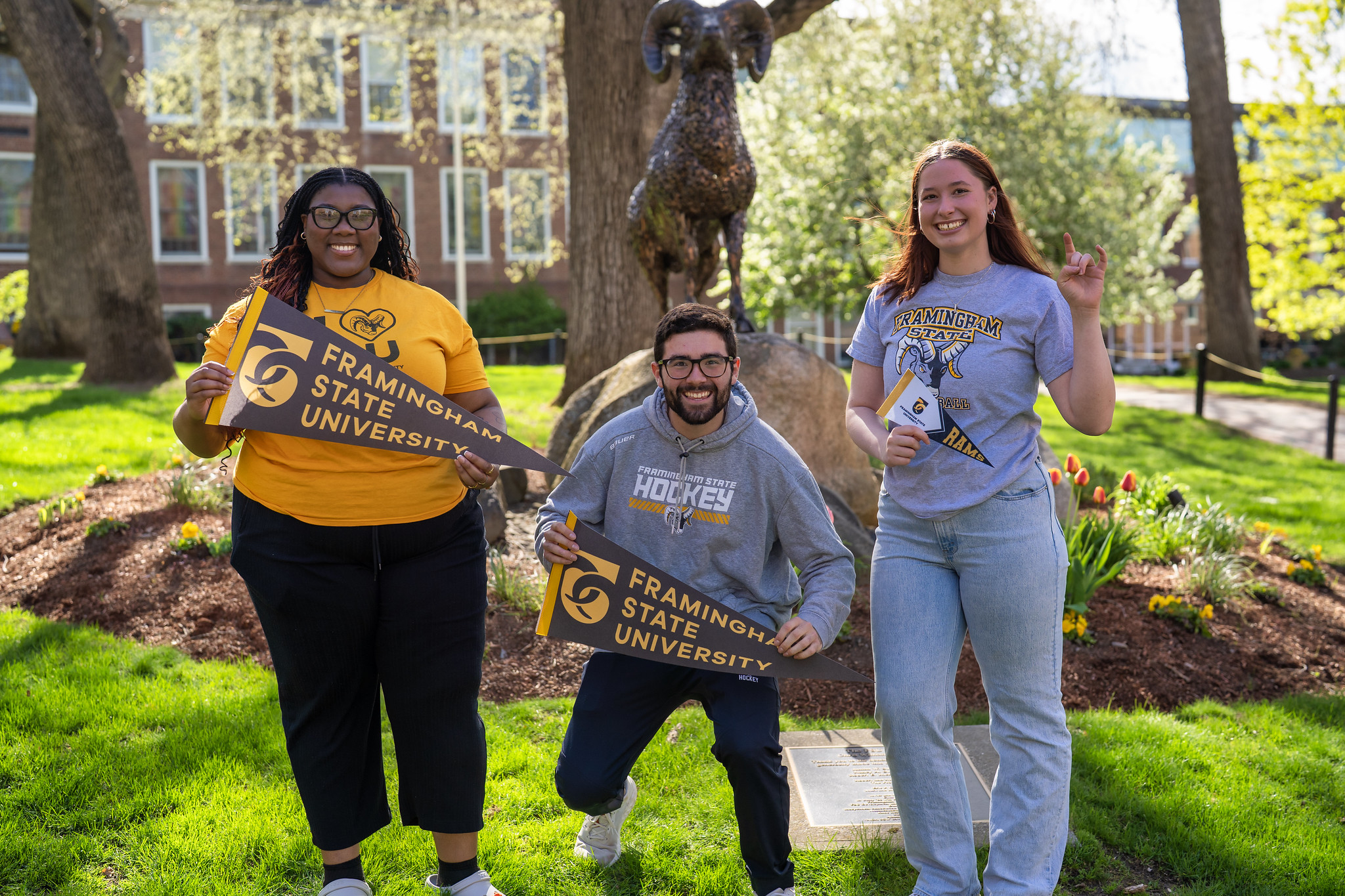Welcome to Framingham State University
Founded in 1839 as the nation's first Public Normal School dedicated to the preparation of teachers, Framingham State University has evolved over the past 185 years into a comprehensive university with standout academic programs across a wide range of disciplines, from the arts, humanities, education, business, social sciences, hard sciences, and more.

Rooted in reform and more relevant than ever, Framingham State's mission has always been to democratize access to a first-rate education. We offer an eye-opening, life-changing experience to all who are chasing a dream. Unapologetically defined by our public status, our ethos to serve the public good is as vital today as it was when we first opened our doors. It’s the power of a being a public university that allows us to impact our students in a way that dramatically changes who they are and who they can become.
A power that creates a ripple effect from our students to their families and beyond. A power that allows us to truly serve the unique Framingham community we live and learn in – and allows that community to provide a rich learning landscape and endless network of opportunities for our students.
Live to the Truth
Since 1839, when Cyrus Peirce closed each of his lessons at what was then The Normal School with the phrase “live to the truth,” the Framingham State community has embodied this motto. The phrase ties into our founding mission of expanding public access to high-quality education and preparing graduates to lead with integrity. Nearly two centuries later, that mission endures and the call to live to the truth is more urgent than ever. Learn More
1st
4,002
17
20

Inclusive Excellence
Framingham State has been honored with the Higher Education Excellence in Diversity (HEED) Award for our commitment to anti-racism, equity and inclusion.
50%
51%
89%
15
Our Campus is Our Canvas
Framingham State is set on 78 acres of a traditional New England campus. Our campus strikes a balance with its historic, picturesque buildings and modern facilities like our state-of-the-art science labs and residence halls.

Small School, Big Impact
While we are proud of our roots as a teachers’ college, we have grown to offer a comprehensive education in many fields. Framingham State is a world-class university. There are hundreds of educators in schools across the region and beyond, our students and alumni are also making waves in the fashion industry, designing nutrition plans for professional athletes, writing for major media and news organizations, working in health fields, and blazing trails for Fortune 500 companies right here in Framingham.
FSU News
Learn more about what's happening on and around campus.
Accreditation
Framingham State University is accredited by the New England Commission of Higher Education

